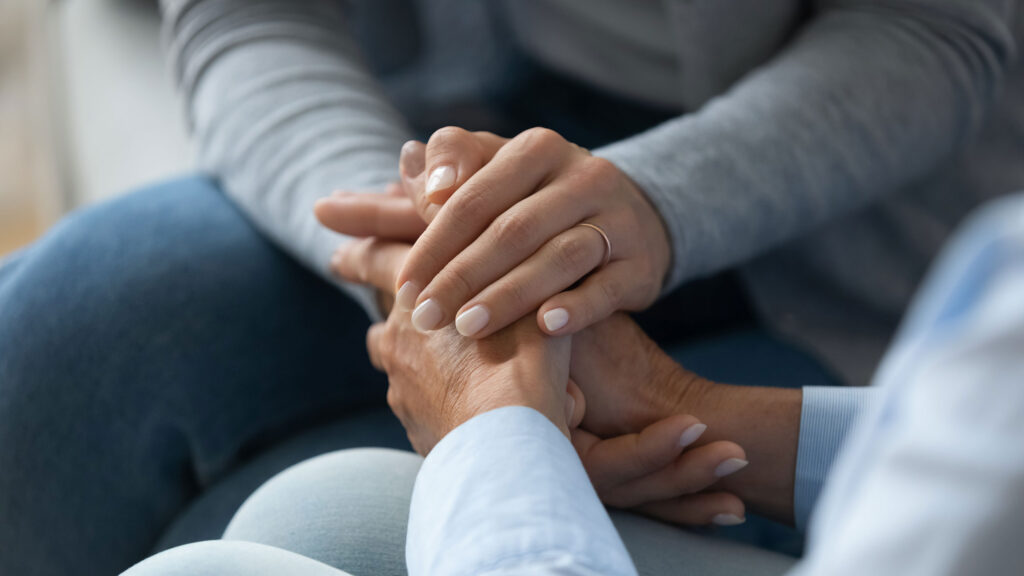Quality of life tips
from people who have idiopathic hypersomnia or narcolepsy type 1 or 2

from people who have idiopathic hypersomnia or narcolepsy type 1 or 2
 At the Hypersomnia Foundation, we understand that people may have given you uninvited advice about diet, exercise, sleep hygiene, and more as the answer to your hypersomnia symptoms. These types of behavioral changes usually won’t significantly improve your symptoms. However, many people with hypersomnias (PWH) report that it’s often worth trying these to see if they improve your individual quality of life in small or even more meaningful ways. They may help with managing the emotional toll of your symptoms, daytime functioning, wakefulness, or general health. Regardless, it’s critical that you get support for living with a hypersomnia.
At the Hypersomnia Foundation, we understand that people may have given you uninvited advice about diet, exercise, sleep hygiene, and more as the answer to your hypersomnia symptoms. These types of behavioral changes usually won’t significantly improve your symptoms. However, many people with hypersomnias (PWH) report that it’s often worth trying these to see if they improve your individual quality of life in small or even more meaningful ways. They may help with managing the emotional toll of your symptoms, daytime functioning, wakefulness, or general health. Regardless, it’s critical that you get support for living with a hypersomnia.
Jump to page sections
 PWH face challenges with their mental health and wellbeing at home, work, and school, which may cause social and financial problems. This makes it very important to build a support community and get support, which can include therapy, support groups, and support services.
PWH face challenges with their mental health and wellbeing at home, work, and school, which may cause social and financial problems. This makes it very important to build a support community and get support, which can include therapy, support groups, and support services.
A common misconception is that excessive sleep is a sign of laziness, poor motivation, denial, or avoidance. Spouses, partners, parents, family, and close friends can benefit from learning more about hypersomnias, so they can better understand your symptoms and how these symptoms may affect you. Including your supporters in doctor appointments can improve everyone’s understanding of your hypersomnia sleep disorder. Educating those who might regularly interact with PWH about hypersomnias should be part of the treatment plan. Learn more about “Educating others about your sleep disorder.”
Different types of therapy may help PWH learn to cope better with their chronic sleep disorder.
Behavioral sleep medicine specialists (with the credentials CBSM or DBSM) have extra training in working with people who have sleep disorders.
If you’re the only person you know with your diagnosis, you may feel alone and that others don’t understand what you’re going through. Support groups are a great way to meet people who “get it.” Sharing stories about living with hypersomnias may help you feel supported and less alone.
The Hypersomnia Alliance has a list of support groups. While many of these groups meet online, a few meet on video calls or in person. Follow the links to find out more about each group.
Many organizations give information and help to people living with chronic disease. Your doctor can refer you to social workers. Find other support services resources, such as the Patient Advocate Foundation (PAN) and Job Accommodations Network (JAN), on our web pages:
Some PWH feel somewhat refreshed after taking a nap. However, other PWH may not find naps to be helpful, or naps may even worsen symptoms.
Your level of refreshment, including how long it lasts, may depend on how long you nap, when you nap, and how much sleep inertia you have. Try different nap times and lengths, which may range from 20 minutes to a couple of hours. Some PWH say they feel best with more than 1 nap per day.
To learn more about safe ways to nap while on the road, see our web page “Napping in your car safely.”
Meditation may help your brain rest and lower sleepiness. It can also improve your mindfulness, which can help with coping and managing stress. Mindfulness can help increase your joy throughout the day, as you fully notice things like an accomplishment, a sunset, a tasty meal, or connecting with a friend.
Sometimes meditation can lead to sleep, so it’s a good idea to be prepared for a nap. If you don’t want to nap, try movement meditations such as yoga or mindful walking. The most important thing is to find a practice that helps you observe your wandering mind with curiosity, not judgment.
A good meditation resource is Full Catastrophe Living, Jon Kabat Zinn’s book about an 8-week meditation program started at UMass medical center. There are many local programs based on this book and some online programs too (such as Palouse Mindfulness, which is free). There are also free apps available on your smartphone to practice meditation, such as the Insight Timer.
Exercise or staying busy with movement may help improve wakefulness while you’re active and sometimes also afterward. For example, you can try using a treadmill, a stationary bike, or an under desk bike during Zoom calls or while you try to read. Try not to get discouraged if a specific type of exercise doesn’t work for you. It may take some time to find the right fit. For example, if you fall asleep doing yoga, try something more active.
If you have sleep disturbances, research shows that regular exercise can improve sleep. To read more about this topic, see Cleveland Clinic’s “How Exercise Affects Your Sleep.”
Keeping house, caring for children, and other everyday tasks are difficult for everyone but can be even more so if you have a chronic condition. KC Davis, a licensed therapist, created Strugglecare for people like herself who find it a challenge to keep up with the demands of daily life. Explore the website for links to books, courses, tips and more.
Many PWH struggle with decision-making and low energy and wakefulness, so meal prep and planning may be difficult for you. Coping skills can help, such as making easy meal plans that you can repeat, and having ready-made meals available. Making sure you don’t get too hungry and exhausted at the same time may be your most important goal. Many PWH say: “Fed is best.”
Some PWH find that a full stomach makes them feel more sleepy. If this is true for you, think about eating more frequent, smaller meals throughout the day. It may also help to schedule your meals closer to your nap times.
To improve sleep quality, consider these tips:
Doctors don’t know exactly how diet and nutrition directly affect hypersomnias, but read what one sleep specialist/neurologist had to say in this Sleep Review article: “How Does Nutrition Impact Sleep Disorders?”
Tracking your sleep, medicines, and activities can help you find what makes your symptoms better or worse as well as patterns across the day or week. Your journal may give you ideas on how to change your medicines or better organize your day. By sharing your journal with your doctor or therapist, they may be able to help you find patterns and change your plan of care. To see an example journal and instructions on how to keep your own, go to our “Sleep-wake journaling” web page.
Professionally trained service animals may help PWH. For example, a service animal can be trained to:
Owning and caring for any animal is a major commitment and expense, which is usually not covered by health insurance. For more information, see our 2-part series on Service and Therapy Animals and this Sleep Review article: “Dogs and Their Promising Roles in Sleep Disorders Therapy.
“Sleep hygiene” is a list of “do’s and don’ts” to lessen sleep disturbance for people with insomnia. Sleep hygiene alone is not considered an effective treatment for any sleep disorder, but some of these sleep habits may be helpful for PWH, especially if you have disrupted sleep:
Sleep compression or restriction (a type of therapy where you restrict the number of hours you sleep) is another behavioral strategy that healthcare professionals sometimes recommend for people who have insomnia.
Published Dec. 5, 2022 |
Revised Jan. 31, 2024
Complete update Nov. 4, 2023 |
Approved by our medical advisory board